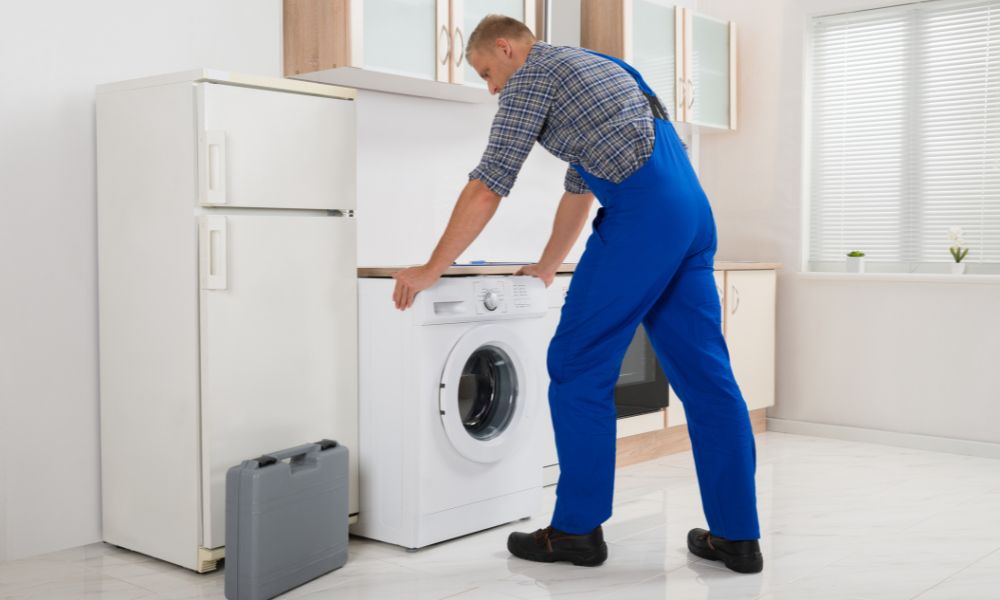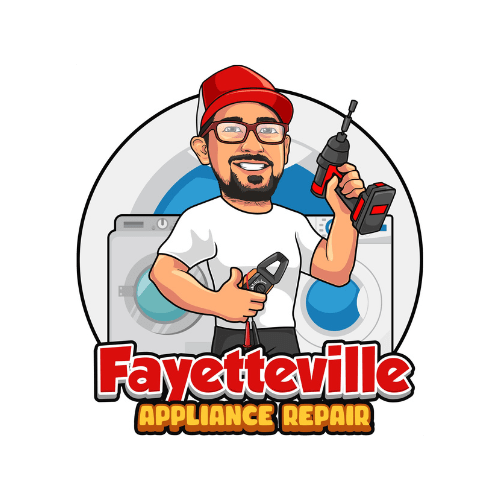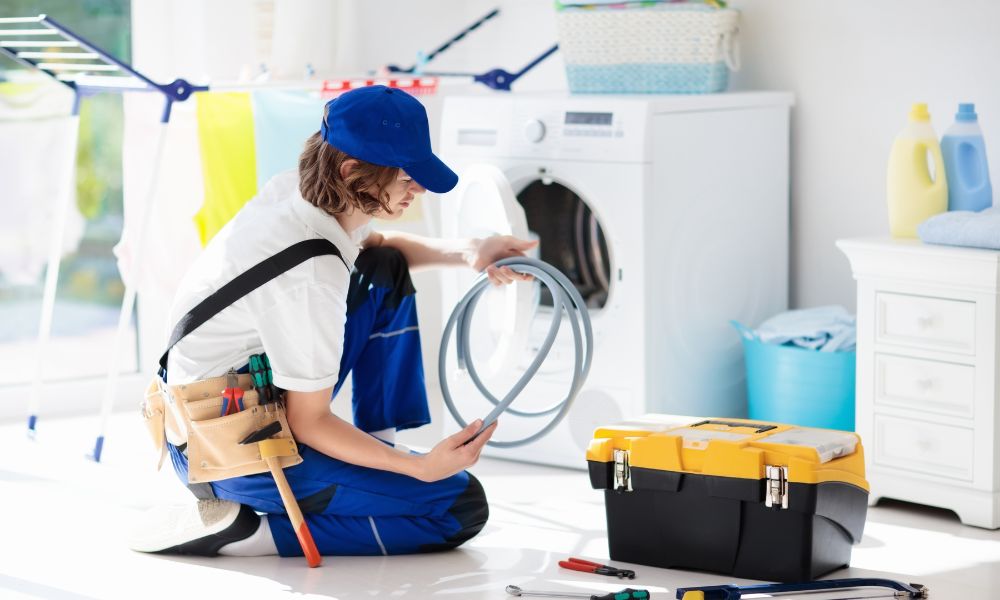Washers are essential appliances in any household, making laundry chores more manageable and efficient. However, like any other machine, washers can encounter problems over time, disrupting your daily routine. From minor issues like leaks to major malfunctions like not spinning, understanding how to troubleshoot and repair your washer can save you time, money, and frustration.
Introduction to Washer Repair
Washer repair involves diagnosing and fixing issues that affect the functionality of your washing machine. While some problems can be easily resolved through DIY methods, others may require professional intervention. Knowing how to identify and address common washer problems can extend the lifespan of your appliance and ensure optimal performance.
Common Washer Problems
Leaking
One of the most common issues homeowners encounter with their washers is leakage. Leaks can occur for various reasons, including damaged hoses, loose connections, or faulty seals. Identifying the source of the leak is crucial for determining the appropriate course of action.
Not Spinning
If your washer fails to spin during the cycle, it can result in improperly washed clothes and excess water retention. A malfunctioning motor, defective lid switch, or worn-out drive belt could be the culprit behind this problem. Diagnosing the cause will help you implement the necessary repairs.
Not Draining
A washer that doesn’t drain properly can leave your laundry soaking wet and require manual intervention to remove excess water. Clogged drain hoses, a malfunctioning pump, or a blocked filter can impede the draining process. Regular maintenance can prevent such issues from occurring.
Loud Noises
Unusual noises emanating from your washer during operation could indicate underlying mechanical issues. Worn-out bearings, loose parts, or an imbalanced load can contribute to noisy operation. Addressing these issues promptly can prevent further damage to your appliance.
DIY Washer Repair Tips

Checking for Blockages
Inspect the drain hose and pump for any obstructions that may impede water flow. Remove debris or foreign objects that could be causing the blockage, ensuring smooth drainage during the wash cycle.
Inspecting the Hoses
Regularly examine the inlet and outlet hoses for signs of wear, cracks, or leaks. Replace damaged hoses promptly to prevent water leakage and ensure proper water supply and drainage.
Cleaning the Filter
Many washers are equipped with a filter to trap lint, debris, and other particles from entering the drainage system. Clean the filter regularly to prevent clogs and maintain optimal washer performance.
When to Call a Professional
While some washer problems can be addressed through DIY methods, certain issues may require the expertise of a qualified technician. If you’re unsure about diagnosing or repairing a problem, it’s best to seek professional assistance to avoid causing further damage to your appliance.
Choosing a Washer Repair Service
When selecting a washer repair service, consider factors such as experience, reputation, and pricing. Look for licensed and insured technicians who offer reliable services at competitive rates. Reading customer reviews and obtaining recommendations can help you make an informed decision.
Cost of Washer Repair
The cost of washer repair varies depending on the nature and severity of the problem, as well as the service provider’s rates. Minor repairs such as replacing a hose or fixing a leak may be relatively inexpensive, while major repairs like motor replacement can be more costly. Requesting quotes from multiple repair companies can help you compare prices and choose the most cost-effective option.
Preventive Maintenance Tips
To minimize the risk of washer malfunctions, follow these preventive maintenance tips:
- Regularly clean the detergent dispenser and drum to prevent mold and mildew buildup.
- Avoid overloading the washer, as it can strain the motor and cause excessive wear and tear.
- Inspect and tighten hose connections periodically to prevent leaks.
- Use only recommended detergents and avoid overusing laundry additives, which can cause residue buildup.
Eco-Friendly Washer Repair Solutions
In addition to maintaining your washer’s functionality, consider implementing eco-friendly repair solutions to reduce energy consumption and minimize environmental impact. Opt for energy-efficient appliances, use cold water whenever possible, and repair leaks promptly to conserve water and energy.
Conclusion
Washer repair is a crucial aspect of appliance maintenance, ensuring that your washer remains functional and efficient. By familiarizing yourself with common washer problems, implementing preventive maintenance measures, and knowing when to seek professional assistance, you can prolong the lifespan of your appliance and minimize repair costs.
FAQs
- How often should I clean my washer’s filter?
- It’s recommended to clean the filter every 2-3 months to prevent clogs and maintain optimal performance.
- Can I use DIY methods to repair a leaking washer?
- While minor leaks can often be fixed with DIY methods, it’s essential to identify the underlying cause to prevent recurrence. If unsure, consult a professional technician.
- What are some signs that my washer needs repair?
- Signs of washer problems include unusual noises during operation, leaks, failure to spin or drain, and visibly worn or damaged components.
- Is it worth repairing an old washer, or should I invest in a new one?
- The decision to repair or replace a washer depends on the extent of the damage, the cost of repairs, and the age of the appliance. A qualified technician can assess the situation and provide guidance based on your specific circumstances.
- How can I prolong the lifespan of my washer?
- Regular maintenance, proper loading techniques, using recommended detergents, and addressing issues promptly can help extend your washer’s lifespan and optimize its performance.

